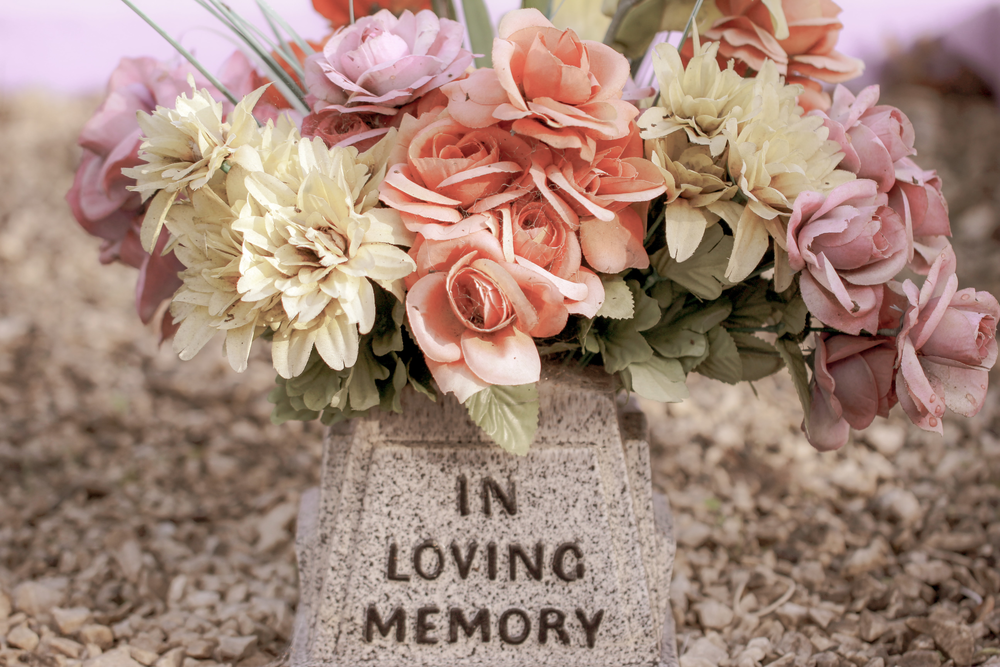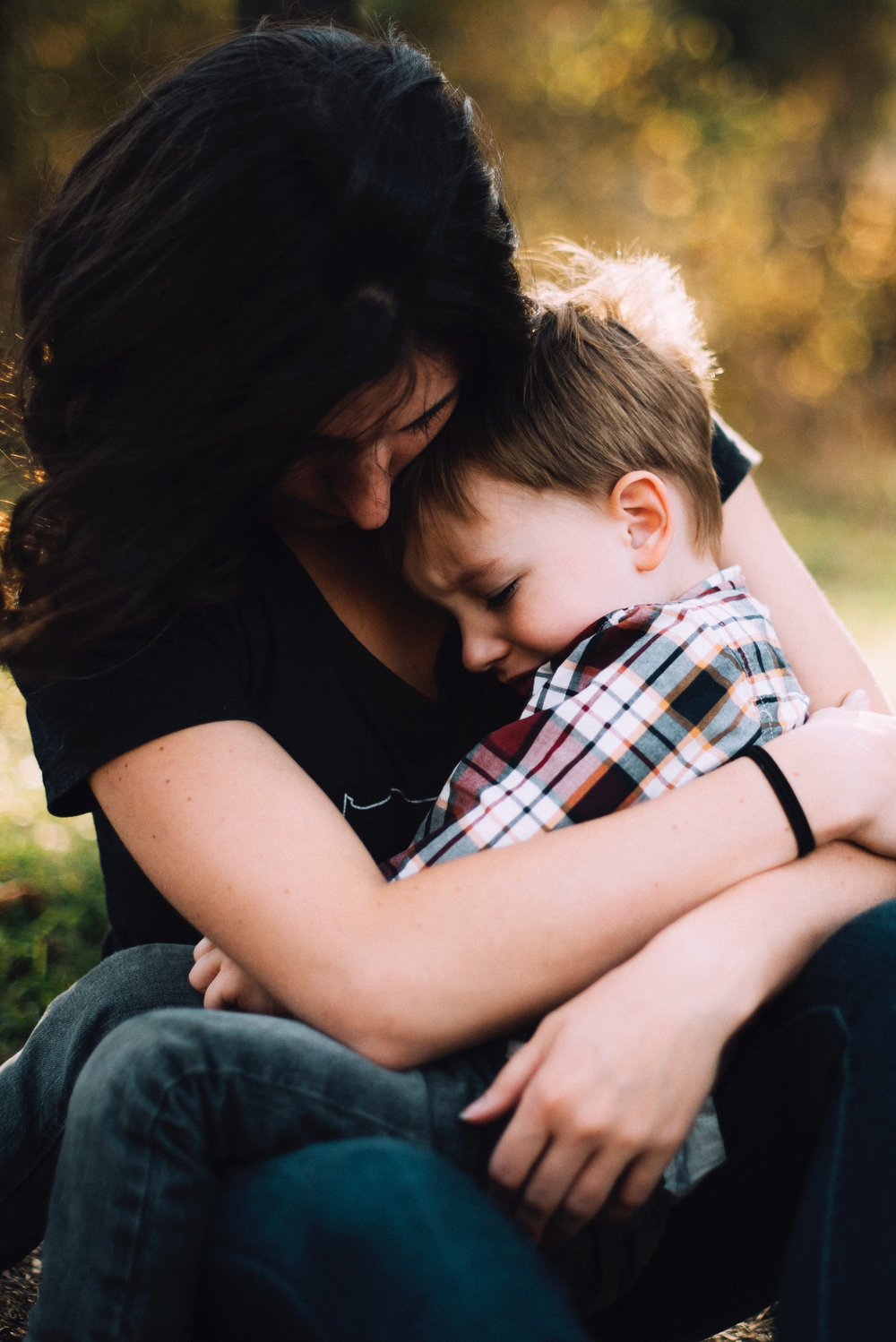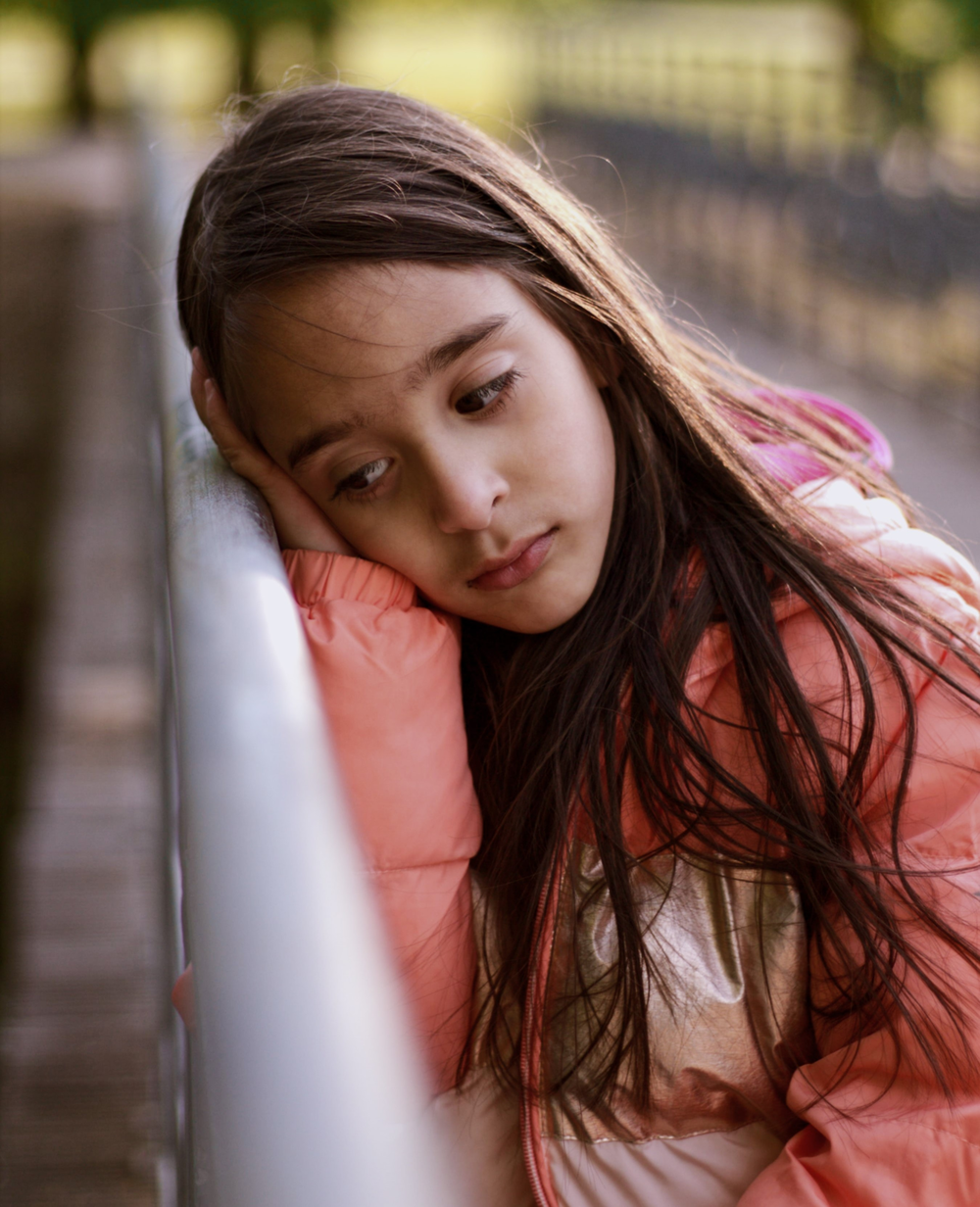
Caption
According to Kate's Club, one in 13 children in Georgia suffer the loss of a parent or sibling before the age of 18. The COVID-19 pandemic has made that ratio worse.
Credit: Sandy Millar

According to Kate's Club, one in 13 children in Georgia suffer the loss of a parent or sibling before the age of 18. The COVID-19 pandemic has made that ratio worse.
A new study published this month in the Journal of Pediatrics estimates that more than 140,000 children in the United States have lost a parent, grandparent, or caregiver to COVID-19. The majority of these children come from racial and ethnic minority groups. So how can we help children going through the grieving process? Kate Atwood has some ideas. Atwood is a founder of Kate's Club, a Georgia-based nonprofit that works to help children deal with death.
Leah Fleming: Good morning, Kate.
Kate Atwood: Good morning, Leah. Thank you for having me.
Leah Fleming: So, according to Kate's Club, one in 13 children in Georgia suffer the loss of a parent or sibling before the age of 18. What has your organization experienced with this pandemic? What have you been dealing with in terms of children, and does it feel different?
Kate Atwood: It does. COVID alone has, its estimated, increased the number of children who are bereaved in Georgia by 30%. So that is a large number and a large number to grow fast. And these families are just trying to figure out how they work through an environment in which the typical rituals aren't available to them, right? Because oftentimes somebody who is dying of COVID is alone in the hospital.
Leah Fleming: It seems like families were connected through their churches, and things have just been so virtual that those resources seem to have disappeared.

According to Kate's Club, the pandemic has increased the number of Georgia children grieving the loss of a loved one by 30%
Kate Atwood: Yeah, the loss of that community, faith-based community, recreational community further isolates a child and a family. A lot of times when children are grieving, they try to stick to routine as much as they can. So, when that routine is altered, it can tend to compound the grief and the loss.
Leah Fleming: Now this is something that you know about very well. You founded Kate's Club many years after your own experience with loss as a child. Can you tell us about Audrey, your mother?
Kate Atwood: Oh, yes. Thank you for asking about her. My mom was a teacher. She was an educator, and a lot of ways Kate's Club embodies who my mother was. She loved helping children. She loved helping children who didn't have the privilege and the access to some of the things that she had and that she was giving my brother and I. And it was a real loss to the community when she died. She died at 41 after a battle with breast cancer. I sometimes say, you know, this was the late '80s when, you know, cancer was still kind of a bad word in our culture. And she would show up to teach her fifth grade class, you know, without any hair.
Leah Fleming: Oh, wow.
Kate Atwood: So, she was an incredible, incredible woman, and this is certainly a big part of her legacy.
Leah Fleming: And she died when you were just 12.
Kate Atwood: Yes, I was 12 years old, and I remember the day. I'm now 42, so it's been 30 years. But I remember that day. That day is etched in my memory. And, you know, like it was yesterday. It was incredibly pivotal for me. And, you know, because I lived in a culture that didn't invite me to deal with my grief openly or with others, my adolescence was a very isolated and lonely one. When I got older and my world got a little bit bigger, I realized, “Wait, this happens a lot.” And why are we not bringing these kids together? That's certainly what I would have wanted and would have liked, and that was the genesis of Kate's Club.
Leah Fleming: Take us into the walls of Kate's Club and what happens.
Kate Atwood: Yeah. Well, I think the biggest, you know, sometimes people picture Kate's Club before having seen it or experienced it, they think it's this sad, solemn place. And it's everything but. It's colorful walls. It's energetic kids. You know, we really meet the children at where they are and bring them into a social environment and uplifting environment. And then that allows them to build trust and feel safe to then really open up to some of the harder emotions that they're dealing with in their grief. And really, what we're pioneering is this is about the grief. It's anchored in the bereaved child's journey, but it's about the life that they still have to live and how grief can be a channel for growth, a channel for creativity and compassion, and a lot of strength. But that starts by really a child being able to connect to another child who's going through the same experience.
Leah Fleming: You once gave a TED talk on the subject of children and grief, and you said that grief is good. And I found that very interesting. Explain that.

Children tend to grieve in spurts, says Kate's Club Founder Kate Atwood. Whether they're expressing signs of grief or not, Atwood says children need help immediately.
Kate Atwood: You know, my experience with grief and what I've wanted to share with the world is that grief is something that will unite all of us. It will uniquely be something that we all experience. And, you know, children experiencing it earlier in life is certainly not something that we invite or seek out. But when it arrives, it's really our duty to make sure that the environment and the experience can be as good as possible because there are great gifts. There are great gifts that can come from grief — compassion, creativity, you know, connection. So, I've always wanted people to understand that grief is good because what it relies on is people not trying to avoid it. Grief becomes bad when we try to avoid it, when it's unresolved. That's when we start to have some of the outcomes of despair that we're seeing happen around our country. So, when we reframe grief to be good, we can start to deal with it and we can start to build tools and we can start to have a better experience with it. And I don't know about you, Leah, but I'm looking for life to be the fullest of experiences, you know?
Leah Fleming: You know what I see? Children are pleasers. And if they're looking at an adult who is looking at them like "This is terrible," then they might want to fix that by saying, “Oh, I'm OK,” when they're really not.
Kate Atwood: One of the biggest differences between adults and children is children won't grieve right away. They tend to start to grieve a year, or sometimes even two years after the core loss has occurred. And as adults, we want them to grieve right away. But they grieve more in spurts, and they grieve more over time.
Leah Fleming: So, for someone dealing with a child in their life who is grieving, do you have any tips of what they should do immediately?
Kate Atwood: I would say no matter what, whether they're expressing signs of grief or not — help is needed. And, you know, certainly here in the metro Atlanta area and across Georgia, reach out to Kate's Club. That's what we are here for. There are other resources, The National Alliance for Grieving Children has a lot of literature and some of the resources that can be listed. But Kate's Club is the place and we're here to help you as a family, as a community to navigate a really, really tricky, tricky time.